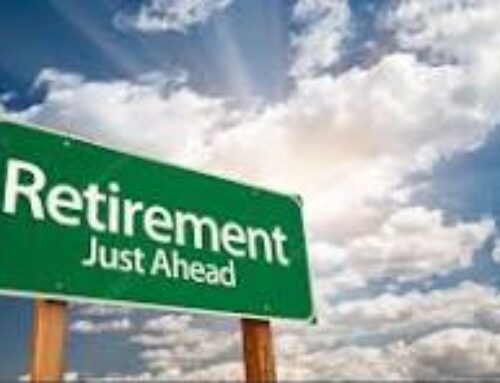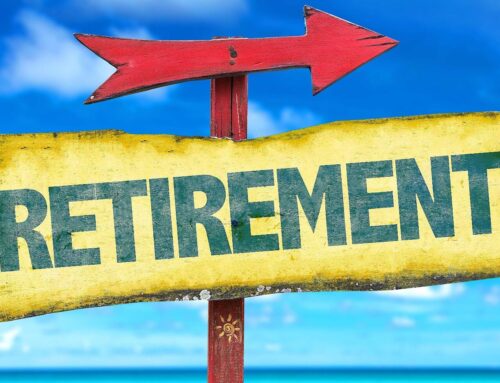Retiring Before 60
If that is your dream, explore whether these steps could be useful to take.
How could you retire in your fifties by choice? You will need abundant retirement savings and ways to access your retirement assets that lessen or avoid early withdrawal penalties. You may also need to have other, sometimes overlooked, components of retirement planning in place.
There are ways to tap retirement savings accounts before 60. True, the I.R.S. discourages this with 10% penalties on traditional IRA withdrawals prior to age 59½ and withdrawals from many employee retirement plans before age 55½ – but those penalties may be skirted.1
An IRA or workplace retirement account funded with pre-tax dollars can be converted to a Roth IRA funded with post-tax dollars. While the conversion is a taxable event, it allows a pre-retiree more potential to retrieve retirement savings early. Before age 59½, you are permitted to make tax-free, penalty-free withdrawals of the amount you have contributed to a Roth IRA (as opposed to the Roth IRA’s earnings). After age 59½, you can withdraw contributions and earnings tax free provided you have owned the Roth IRA for five years. For Roth IRA conversions, the 5-year period begins on January 1 of the year in which the conversion happens. Roth conversions may be a good move for some, but a bad move for those who live in high-tax states with plans to retire to a state with lower income taxes.1,2
A life insurance policy could assist you. For most pre-retirees, buying life insurance comes down to the pursuit of the largest death benefit for the lowest cost. If you have enough net worth to potentially retire before 60, you may have additional objectives. A sizable death benefit could help your heirs pay estate taxes. A whole life policy might provide a consistent return akin to a fixed-income investment in retirement, but without the usual interest rate risk.3
An HSA might help with upcoming health care expenses. If you retire prior to 60, you must acknowledge that you could live another 35-40 years. Fidelity believes that a retiring 65-year-old couple will need $275,000 for future health care costs. It bases its forecast on Social Security life expectancy projections, which have the average 65-year-old retiree living to about age 85. If your retirement turns out to be twice that long, you could need to set aside much more.4,5
A Health Savings Account offers a potential triple tax advantage. Your contributions are exempt from tax, the money saved or invested within the account benefits from tax-free growth, and withdrawals are untaxed if the money pays for health care costs. This is why many people are looking at the combination of HSA-plus-HDHCP (that last acronym stands for high-deductible health care plan).6
Retiring in your fifties may present you with greater financial challenges than if you retire later. While you may retire in better health, you will have to wait to collect Social Security and Medicare coverage. If early retirement is on your mind, consult a financial professional to see if your savings, your potential income streams, your insurance situation, and your ability to work part time correspond to your objective.
Registered Representative, Securities offered through Cambridge Investment Research, Inc., a Broker/Dealer, Member FINRA/SIPC. Investment Advisor Representative, Cambridge Investment Research Advisors, Inc., a Registered Investment Advisor. Cambridge and North Light Financial Services are not affiliated. Cambridge does not offer tax advice. Office of Supervisory Jurisdiction: 46 Accord Park Drive / Norwell, MA 02061 Phone: 781-878-4063
This material was prepared by MarketingPro, Inc., and does not necessarily represent the views of the presenting party, nor their affiliates. This information has been derived from sources believed to be accurate. Please note – investing involves risk, and past performance is no guarantee of future results. The publisher is not engaged in rendering legal, accounting or other professional services. If assistance is needed, the reader is advised to engage the services of a competent professional. This information should not be construed as investment, tax or legal advice and may not be relied on for the purpose of avoiding any Federal tax penalty. This is neither a solicitation nor recommendation to purchase or sell any investment or insurance product or service, and should not be relied upon as such. All indices are unmanaged and are not illustrative of any particular investment.
Citations.
1 – cnbc.com/2017/07/05/three-retirement-savings-strategies-to-use-if-you-plan-to-retire-early.html [7/5/17]
2 – bankrate.com/investing/ira/roth-ira-5-year-rule-the-tax-free-earnings-clock-starts-ticking-at-different-times/ [3/25/16]
3 – forbes.com/sites/jamiehopkins/2017/04/27/why-life-insurance-is-essential-for-retirement-planning/ [4/27/17]
4 – fidelity.com/about-fidelity/employer-services/health-care-costs-for-retirees-rise [8/24/17]
5 – ssa.gov/planners/lifeexpectancy.html [9/14/17]
6 – cbsnews.com/news/how-to-cope-with-health-care-costs-in-retirement/ [9/12/17]




